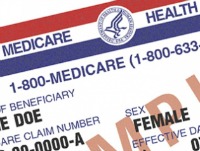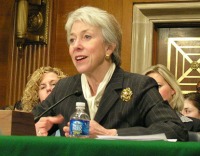Tag: Medicare
-

/
5240 SEEN/
How Medicare Advantage investors made billions off loose government lips
By Fred Schulte
Center for Public Integrity
The third of February 2011 was mostly a ho-hum day on Wall Street — but not for companies offering Medicare Advantage plans. Several of those firms hit the jackpot, tacking on billions of dollars in new value after federal officials signaled they might go easy on health plans suspected of overcharging the government. -

FBI probes whistleblower claim of $130 million scam; Plaza Health Network under scrutiny
By Francisco Alvarado
BrowardBulldog.org
Since being founded 64 years ago as a convalescent home for elderly Jewish people and war veterans, Plaza Health Network has nurtured a reputation for providing top-notch services to senior citizens of all denominations. But a little-noticed whistleblower’s lawsuit by an ex-Plaza executive alleges the non-profit company scammed the federal government for $130 million. -

/
5178 SEEN/
Payments to CEO raise new conflicts at top health quality group
By Marshall Allen
ProPublica
The top executive at the country’s pre-eminent health care quality organization is being paid hundreds of thousands of dollars by two large medical companies that have a stake in the group’s work. -

/
5100 SEEN/
The other Washington could hold the key to Medicare’s cost crisis
By Joe Eaton
Center for Public Integrity
A recent federal assessment of Medicare’s fiscal health contained a shred of good news — the public health insurance program for the elderly is burning through cash at a slightly slower rate than expected. Yet declining health care costs haven’t bought much time. -

/
5108 SEEN/
ObamaCare oversight: Budget squeeze forces HHS watchdog to trim investigative targets
By Fred Schulte
Center for Public Integrity
Facing major budget and staff cuts, federal officials are scaling back several high-profile health care fraud and abuse investigations, including an audit of the state insurance exchanges that are set to open later this year as a key provision of the Affordable Care Act. -
/
12053 SEEN/
Broward Health’s liability in federal kickback probe estimated at $100 million
By Karla Bowsher
BrowardBulldog.org
Broward Health faces $100 million in potential civil liability due to an ongoing federal anti-kickback investigation into whether it submitted false Medicare and Medicaid claims. “We’re looking at, I’ve heard, up to $100 million,” said Broward Health Commissioner David Di Pietro.
Support Florida Bulldog
If you believe in the value of watchdog journalism please make your tax-deductible contribution today.
We are a 501(c)(3) organization. All donations are tax deductible.

Join Our Email List
Florida Bulldog delivers fact-based watchdog reporting as a public service that’s essential to a free and democratic society. We are nonprofit, independent, nonpartisan, experienced. No fake news here.
